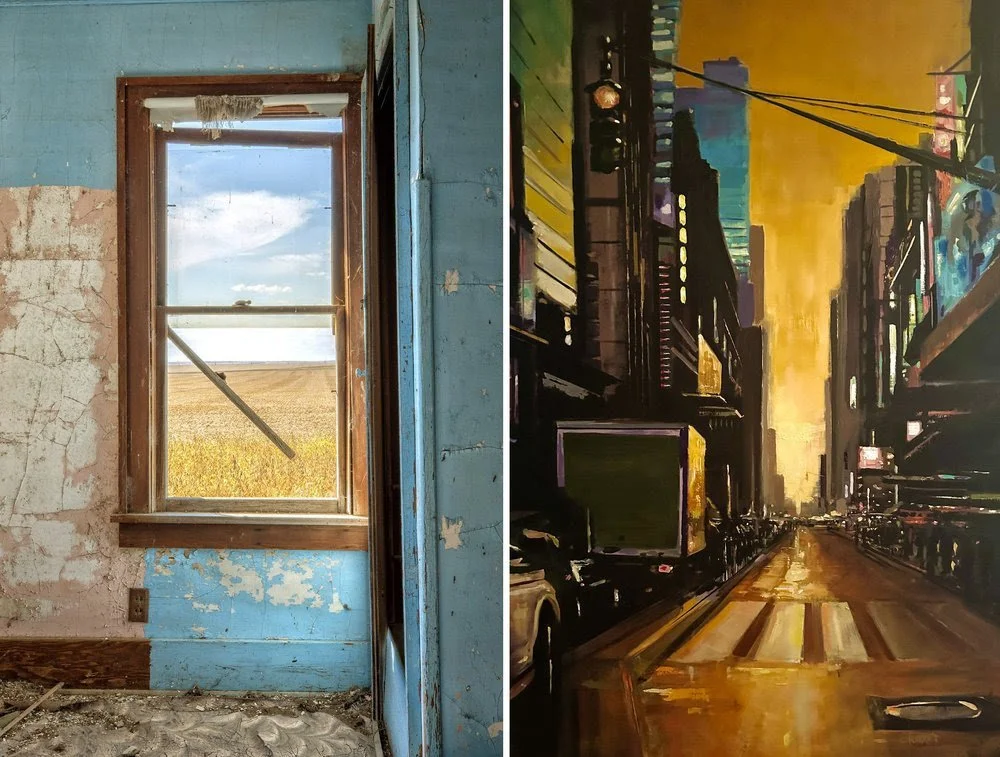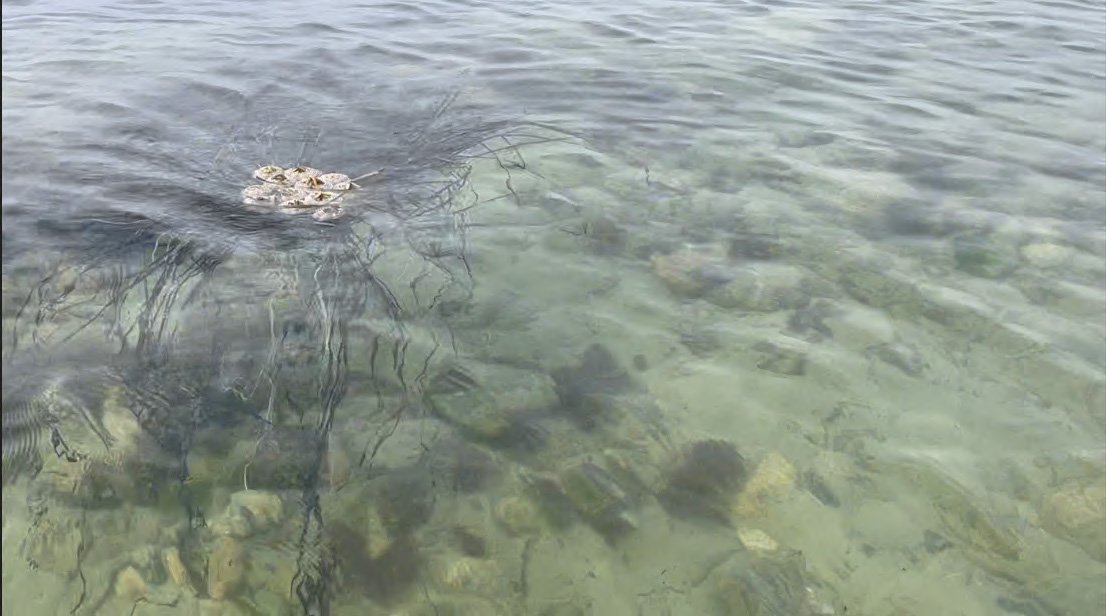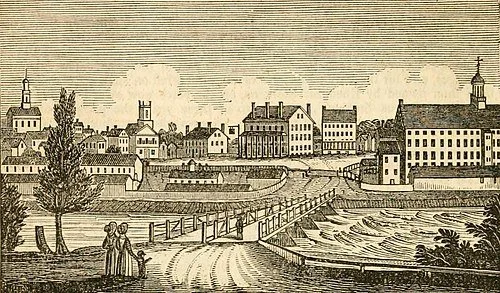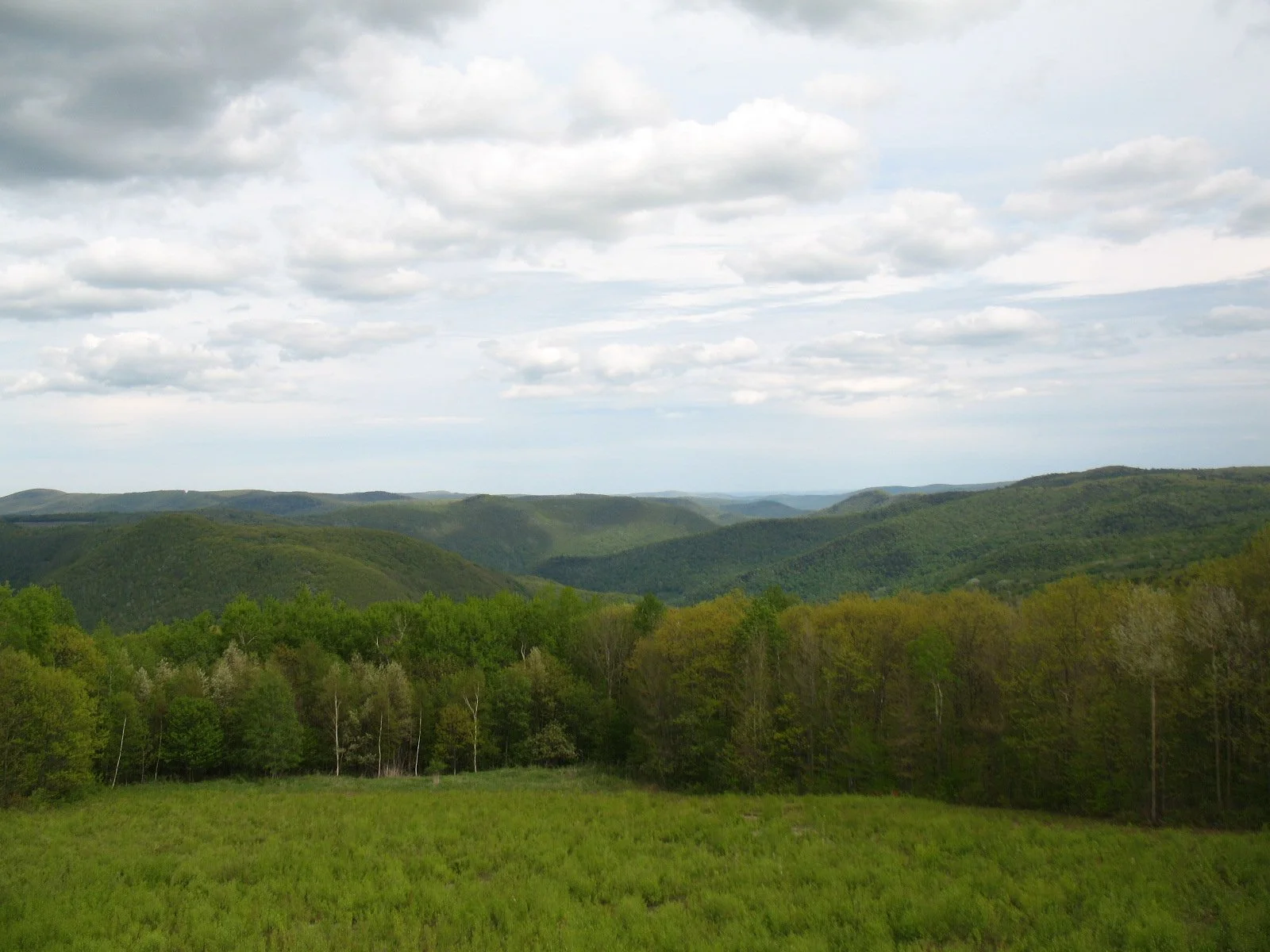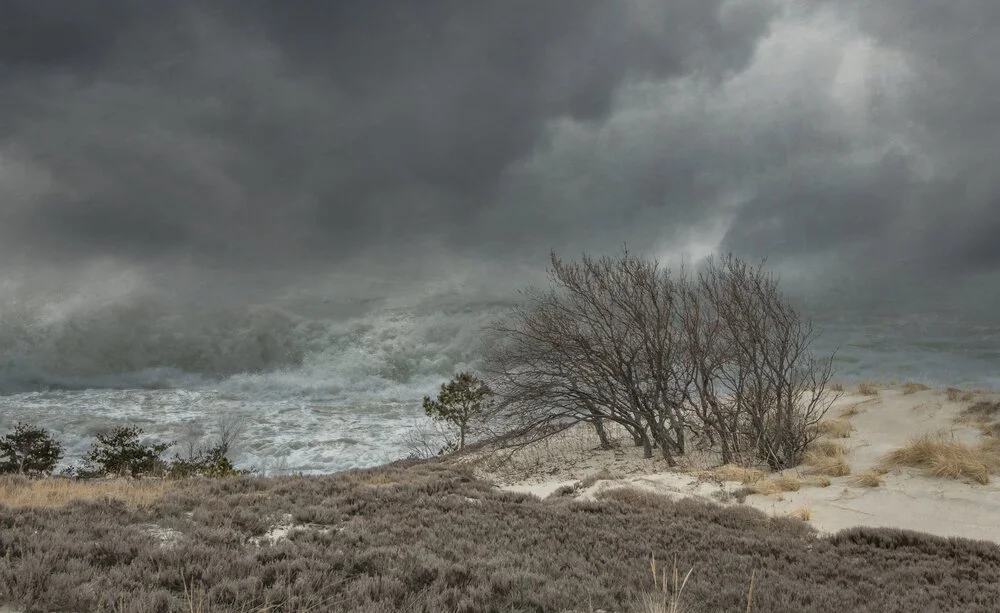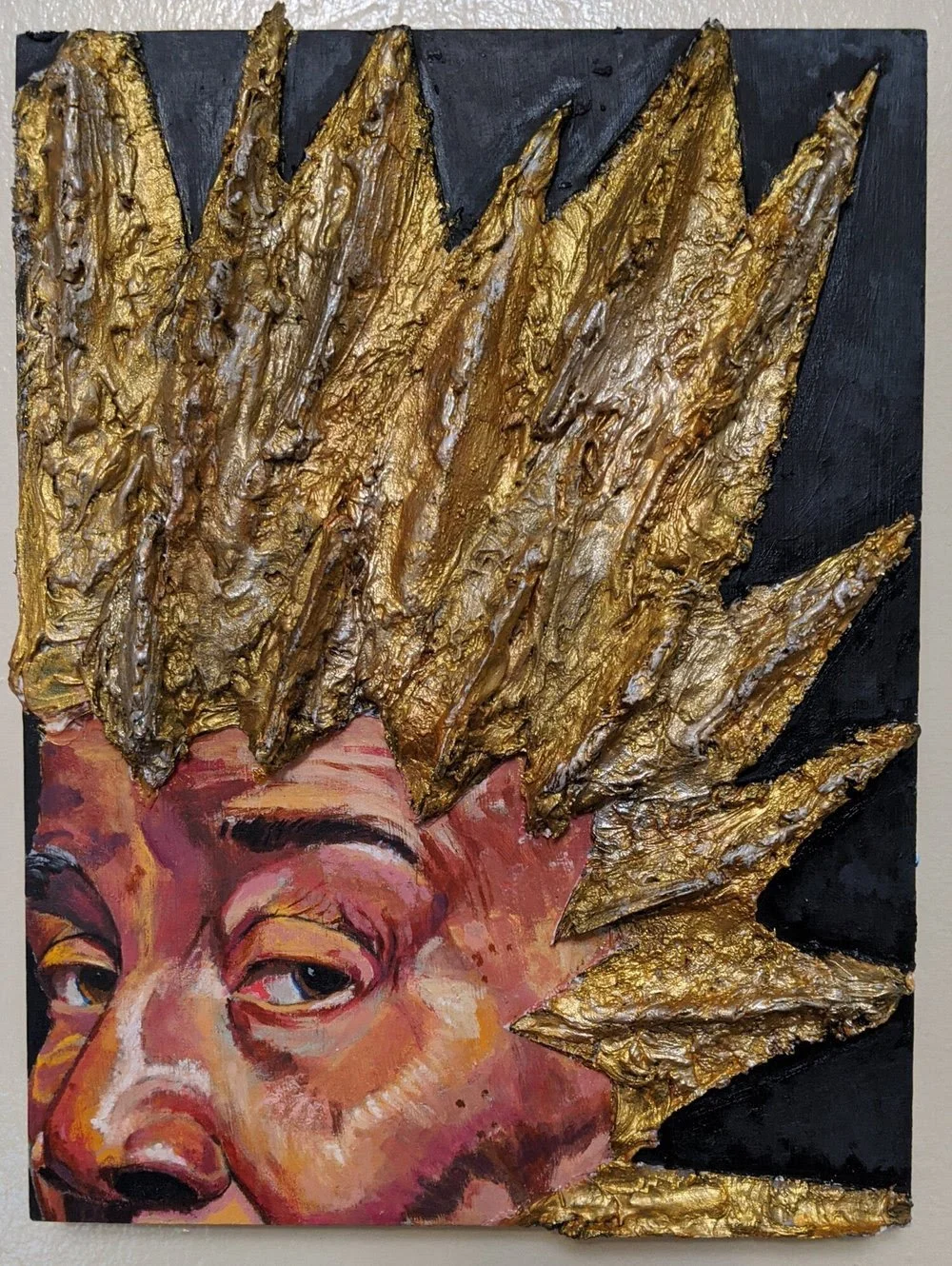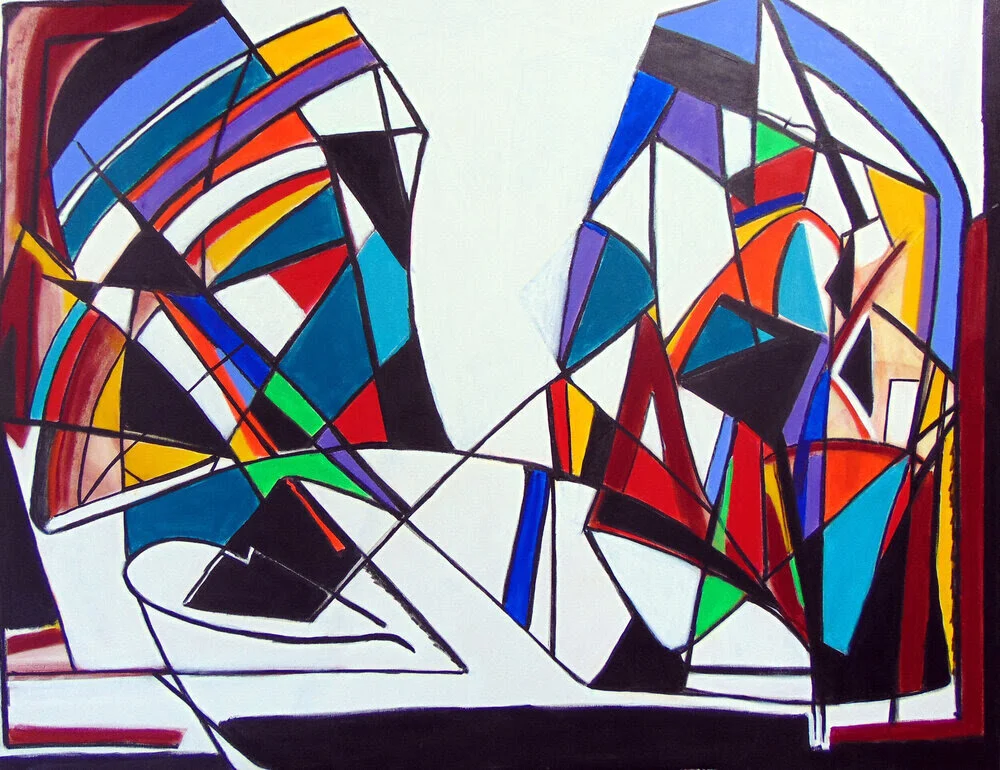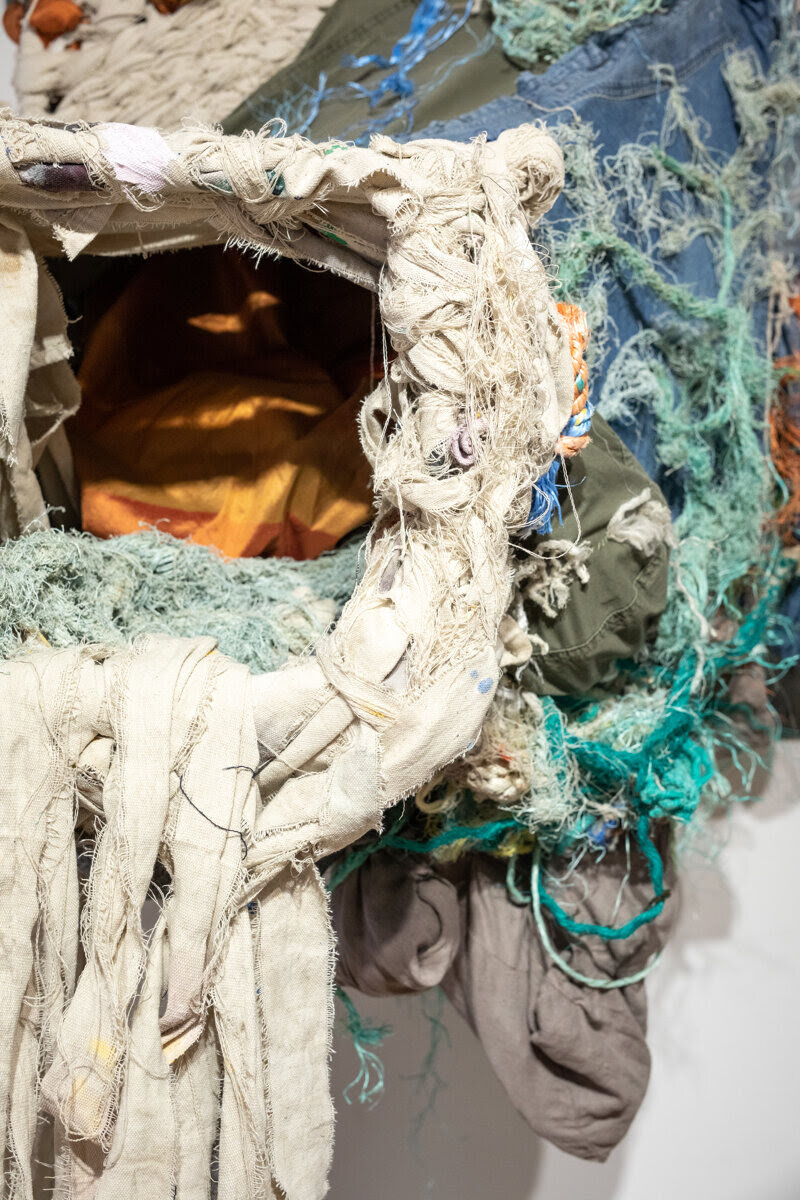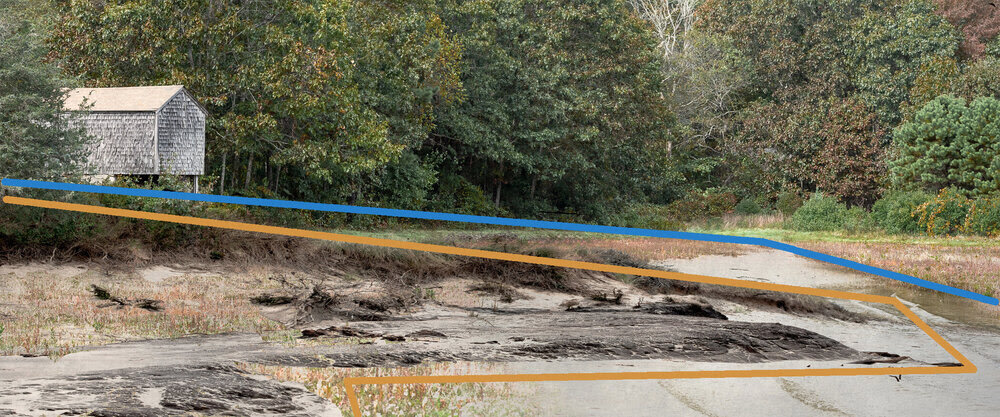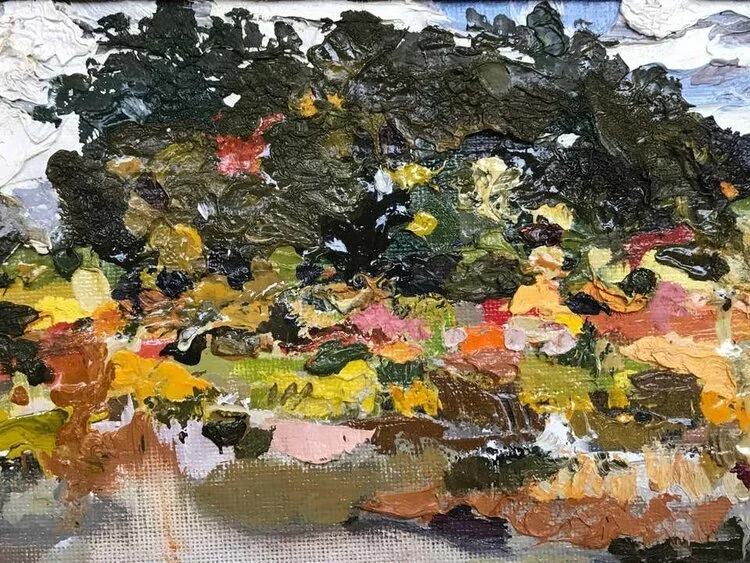
Travel, time and place
Left ,“Interior V ‘‘ (photograph on aluminum), by Rebecca Skinner. Right, “W. 42nd St.’’ (oil on panel), by Chris Plunkett, in the group show “Travelling,’’ at Fountain Street Fine Art, Boston.
The gallery says:
“‘Travelling’ suggests a sojourn to a destination in some form or another, and the concept of ‘place’ is examined along multiple vectors by this group of artists. Rebecca Skinner’s interior/exterior photographs of abandoned places contain a textural richness revealing a morphological study not merely of paint, brick, and wood, but also the chronological layers of story. The vibrant cityscapes that fluidly leap from the brush of Chris Plunkett….{T}he intensity of his palette turns recognizable metropolitan scenes into urban spectacles out of fondly remembered dreams.’’
'Beauty of decay'
Video still from the show “Impermanence III,” by Connecticut-based artist Miller Opie, at Fountain Street Fine Art, Boston, through Jan. 14.
She explains:
“I started making art to explore a very personal physical experience that started over ten years ago. After several years of surgeries to rebuild my jawbone that was being destroyed by benign tumors, I create art to intimately explore beauty, mortality, and rejuvenation. As my practice has progressed, I have found that there is great beauty in aging, evolving and even in decay. These themes have led me to explore the idea of ‘Impermanence”’ while at an artist residency in France last year. This film shows the continuation of the ‘Impermanence’ concept in which I created a sculpture of seagrasses and jute at another recent artist residency. I wove the seagrasses with jute into small basket forms that float in the ocean water, seeming to rejuvenate and come back to life. The result is a meditation on nature, life, and its impermanence.”
Only looks like that in the spring
“Chicopee, MA,’’ by Sandra Cohen, in the group show “Bridges,’’ through Sept. 1, at Fountain Street Fine Art, Boston.
The Cabotville section of Springfield, Mass., as it appeared in 1844. Four years later, Cabotville became part of the new town of Chicopee, as industry boomed in the area.
Memories of landscape
"Granite in Spring" (painting) by Kathline Carr, in 29 her show “In Awe of Nature,’’ through May 29, at Fountain Street Fine Art, Boston. She lives in The Berkshires.
She tells the Gallery:
“I love hiking, particularly in wild, desolate places, and am fascinated by looking at the way light falls on the landscape when I am out on the trail, creating shapes that are craggy, or geometrical, or diffused—or shifting from one to the other. Sometimes I look at the sky or a mountain pass and try to remember the individual parts of the scene for later, when I will imagine the parts rearranged, the lights and darks reversed, or perhaps just one form that caught my eye. My dream travels take me to treks in Tibet, Alaska, Wyoming—I look at pictures of the landscapes in the places I’d like to go, and those images work their way into what I’m making as well. I am in awe of nature and the colors that exist and arise organically and atmospherically. Although I’m not painting the landscape representationally, my observations and memory of it is ever-present in my work, in some form.’’
A view of The Berkshires in North Adams, Mass.
— Photo by jbcurio
As the sea rises
“Crane Beach Gloucester MA’’ (archival pigment print), by Newton, Mass.-based photographer Vicki McKenna, at Fountain Street Fine Art Gallery, Boston.
The gallery says:
“Capturing photos of simplicity, subtlety, and serenity, Vicki McKenna’s work transmits a genuine sense of place. Her curiosity about natural landscapes stems from her background in geology, and her interest in architecture leads her to photograph the built environment. Working in both color and black and white she uses techniques that range from modern archival inks to traditional platinum/palladium prints
“In her current project McKenna creates images that are meant as harbingers from the future. They present the intertwining of ocean and shore environments as sea level rises. Her selection of locations to photograph is informed by, but not limited by, maps of projected sea level rise of 6 feet, a possibility by 2100. The mapping is visualized online by the National Oceanic and Atmospheric Administration. …
“After earning a PhD in Geological Sciences from Brown University and ALB in Natural Sciences from Harvard University, McKenna studied photography at the New England School of Photography and the Photography Atelier at the Griffin Museum. She has had juried solo shows at the Firehouse Center for the Arts, Newburyport and the Newton Free Library, and has exhibited extensively throughout New England and along the East Coast….’’
‘Moment of vulnerability’
“The words that made me” (acrylic on wood panel), by Frantz Lexy, in his show “Exuding Power in Moments of Vulnerability,’’ at Fountain Street Fine Art, Boston.
Mr. Lexy, a Boston-based artist who was born in Haiti, says:
“That painting exudes so much power, and when I took that photo {the inspiration for the painting}, I took a picture of my grandmother while she was over at the hospital waiting room waiting to get care. I thought that picture was a moment we should turn around, and I looked at her eyes and took that picture. Being in a hospital waiting room is a moment of vulnerability, so I like to flip it and give it a sense of power. My grandmother has always been my personal hero.”
They usually are
“Disturbed Interactions” (acrylic on canvas), by Pat Paxson, in the group show “The Momentary,’’ at Fountain Street Fine Art, Boston, through Aug. 29.
She tells the gallery (mysteriously…):
"‘Function of time’ for me is: imaginary in terms of temporal possibilities in outer space, related to our uncontrolled release of physical and experimental sounds and images. ‘Time’ for me functions by way of imagination as well as articles in newspapers and results of experimental painting.’’
Beyond dermatology
“Somber Skin” (detail), (cheesecloth, acrylic, sawdust, string), by Sylvia Vander Sluis, in her joint “Material Witness’ show with Virginia (Ginny) Mahoney, opening in June at Fountain Street Fine Art, Boston. Ms. Sluis’s studio is in Lancaster, Mass.
The gallery says of her work:
“Sylvia Vander Sluis unites contradictory materials in visceral forms that reflect the human condition. Industrial and domestic media are combined in raw, emotional constructions. Inspired by the folds of rosin paper, the transparency of cheesecloth, and the grit of gravel, Vander Sluis creates metaphors for the dualities of life. In one sculpture, plaster gauze holds Styrofoam precariously on structures of willow branches. Her work honors both the fragility and strength of the human spirit.”
First Church of Christ in Lancaster. It was designed by famed architect Charles Bulfinch and built in 1815–1817.
And what a year!
“Thinking One Year Back” (detail). by Alexandra Rozenman in her joint show, “Unfolding Roads,’’ with Nora Valdez, at Fountain Street Fine Art, Boston, through Feb. 28.
The gallery says:
“This exhibit features the paintings and collages of Rozenman, as well as the sculptures and drawings of Valdez. Both artists are immigrants, from the former Soviet Union and Argentina, respectively, and this part of their identities is reflected in their artwork. Rozenman's pieces are large and expansive, depicting a vast world of images, symbols, history and famous artworks. Her early life in Russia influences her approach to beauty and wonder to this day, and her search for belonging forms the core of her art.’’
'Unpredictable, happy accidents'
Photos by Dennis Stein at Fountain Street Fine Art, Boston. He tells the gallery:
“I have always been drawn to mundane and ordinary subjects, and attempt to give them visual strength. I walk around with a camera or two, and just photograph whatever catches my interest. I then sort through what I have and see what threads there are that run through them. Cameras are fun to use, especially older ones. I recently bought a 1936 Zeiss Ikon Ikoflex TLR for $ 60. It works great. Each film camera, each lens, each kind of film has their own personality, in a sense. So when I combine this camera with this lens and this film, I get a result that is different from another combination, which could be subtle or quite different. I have a few Holga toy cameras, one of which has a funky shutter. A Russian 35mm camera doesn’t always wind to the next frame properly, so I get overlapping negatives. I hand-hold a pinhole camera and make an exposure as I am walking. The resulting images can be totally unpredictable, happy accidents.’’
Mr. Stein is based in the Boston suburb of Medfield. Hit this link for his site.
(Pictures below are not by him.)
One of many abandoned buildings on the eerie grounds of the former Medfield State Hospital, an institution for the mentally ill that opened in 1896 and closed in 2003.
Although the buildings are not open to the public (they have been boarded up), the grounds may be visited during daylight hours. It’s a good place to shoot a horror movie.
Pre-suburb: “The Pool, Medfield,” 1889, by Dennis Miller Bunker. Museum of Fine Arts, Boston.
Bone art
“Alterant Emanation Emergence,’’ by southern Connecticut-based Miller Opie, in her show through Jan. 31 at Fountain Street Fine Art, Boston
She says
“My work is directly related to 3+ years of surgeries {on her jawbone} I had several years ago. But it is also rooted in my love of nature and the organic objects I use. My practice is constant: I look for treasures wherever I am. I pick up feathers on the sidewalk in the city. I find shells on the beach. And I collect bones on hikes in the forest behind my studio. Friends also find and give me things to add to my trove.’’
What a drip!
"Ayeka," by Leslie Zelamsky, in the group show “Space and Surface Together,’’ at Fountain Street Fine Art, Boston, through Feb. 4.
The gallery says:
“Since Impressionism many of the best landscape painters have combined illusions of depth with the purpose to elaborate the surface of the support; in other words, the goal has been to make works that are compelling two dimensional structures as well as convincing three dimensional illusions. The landscapes in this exhibition succeed in both of these ambitions. While nature is described or evoked with real success by space, color, light, atmosphere and marks that suggest natural growth, the artists also employ gesture, composition, and sometimes the purity of flat forms to make the surfaces of their paintings fresh with impulse and spontaneity or impressively orchestrated by pattern or design. The result of course is imagery that is doubly rich and attractive.’’
Justin Life's 'fractal structures in everyday life'
Photo by Justin Life in his show at Fountain Street Fine Art, Boston, for January. The gallery says that his recent artwork comes from photos he took while exploring wooded areas in Boston and Chapel Hill, N.C. “He transforms and reverses the photos to inspire scratch-board drawings. In these works, he improvises mandala-like images that connect the fractal structures found in everyday life with structures found in representations of the universe and Baroque figurative painting.’’
It only looks like a muffin
"Internal Sala” (mixed media, pastel) by Ponnapa Prakkamakul, in the “Unexpected Relationships’’ show, at Fountain Street Fine Art, Boston, Ms. Prakkamakul is a Boston-based artist and landscape architect. A sala is a Southeast Asian term for a living room.
Lost, found and reworked
Detail of one of Rebecca McGee Tuck’s sculptures of found objects in her current show at Fountain Street Fine Art, Boston. She tells the gallery:
“The inspiration for all of my work comes from found objects that I collect or that friends and family have found and have thought to give to me. I like to call these emotional artifacts. An entire sculpture can be inspired by one small item. I love to fabricate stories about the history of the objects. The best day in my studio is when I completely lose myself in the back story of my work. I may begin with a photograph or an old crinkly sewing pattern, but I will end the day with a sculptural narrative.’’
See:
https://www.rebeccamcgeetuck.com/blog
and:
https://www.fsfaboston.com/
Metaphors for climate change
See Vicki McKenna’s show “Geology and the Physical World,’’ at Fountain Street Fine Art, Boston. Sadly, the show closes Oct. 25.
She says:
“Trained as a geologist, I see rocks as telling a story if you know how to interpret them. Photographs also require interpretation for they are the ingredients of a story rather than the story itself. The viewer assembles them into a narrative that is personally important.
“My works are photo illustrations that combine multiple photographs and are intended to collapse present and future into one image. All my previous work has been straight photography. I’ve captured an image in the camera, edited, and printed it. My use, here, of editing software to create a composite image is a departure that seemed justified by the challenge of incorporating the element of time into the final image.
“I was motivated by considering the effects of rising sea level. Each image is a montage of two or more photographs. I have merged one photograph representing the current environment with other photographs representing a possible future. The composite image isn’t meant to be a scientific thesis, but a metaphor for a possible result of climate change. In some images it is easy to identify the elements of the individual photographs. In others, the blending of photographs creates an image that almost seems realistic. The ambiguities of scale and detail in the montage are intended to create a sense of discontinuity or unease.’’
See:
https://www.fsfaboston.com/growingagallery/2020/10/23/geology-and-the-physical-world-vicki-mckenna?mc_cid=37b6bc98f3&mc_eid=296ccbd81d
New Bedford, Mass.
Three 'scapes
"Neponset Bay October," by Boston-area painter Joseph Fontinha, in the show “Personal Territories,’’ at Fountain Street Fine Art, Boston, through Nov. 2
The gallery says:
“{The late} Robert Hughes, the fearless art critic some are calling the greatest of our time, once said that ‘Landscape is to American painting what sex and psychoanalysis are to the American novel.’
“Artists in this exhibition focus on three themes that have occupied each of them for a while: the city, the distant landscape, and the lush garden. This collection explores how each theme is distinctly different, exploring emotional ranges of a wildly divergent temperament, while simultaneously unifying them through the language of paint.’’
Besides Mr. Fontinha, the artists in the show are: Jim Banks, Brenda Cirioni, John J. Daly, Catherine Gibbs, Nan Hass Feldman, Chris Plunkett and Marcia Wise.
See:
https://www.fsfaboston.com/
Pictures of the shifting
Left: "Fragnet” (oil and graphite powder on canvas), by Kathline Carr; right: “Crane Beach” (photo), by Vicki McKenna, in their show together “Geographies of a Shifting World,’’ at Fountain Street Fine Art, Boston, through Oct. 25
The gallery says:
The two “share an interest in elemental landforms and geological processes. Carr’s drawings, paintings, and monotypes are in conversation with McKenna’s photography-based prints. They implicitly share an interest in human interaction with the natural world. Their current work has a common focus of climate change. Carr utilizes multiples and repetitious mark-making allowing patterns, gestures, and forms to represent her feelings of despair and hopelessness about current climate. McKenna’s photo illustrations combine multiple images intended to collapse present and future into one image that suggests the result of sea-level rise.’’
Panorama of Crane Beach in September 2007
— Photo by Thomas Steiner
Crane Beach is a gorgeous 1,234-acre state-owned conservation and recreation property in Ipswich, Mass., just north of Cape Ann. It has a four-mile-long sandy beachfront, dunes and a maritime pitch pine forest. Five and a half miles of hiking trails through the dunes and forest are accessible from the beachfront.
The land was given by the Crane family, whose fortune was from plumbing supplies. (One of the family bought my great-great grandfather’s house in Woods Hole, on Cape Cod. — Robert Whitcomb.)
Watch out for the glare
“FaceSwipeStill2,’’ by Joseph Fontinha, at Fountain Street Fine Art, Boston
Colors of summer and fall, too
"Thermos Cluster," by Jill Pottle, in the group show “Colors of Summer Memories,’’ at Fountain Street Fine Art, Boston, and curated by Marygrace Gladden
The gallery says the show “encourages the viewer to recall the emotions and feelings of summer. The season is often associated with warm colors as the temperatures rise and the sun shines differently than any other time of year. Summer of 2020 has led to a halt in normality as the pandemic stopped many seasonal activities that would have been taking place. COVID-19 has society spending their summers in new ways with many people spending more time at home, in their personal spaces. For some, being confined to their home led to renovations as well as new discoveries within the interior spaces in which they inhabit. The warm summer colors, along with the unique familiarity of our homes at this time have created summer memories that will remain at arm's length as the winter months draw near.’’
See:
https://www.fsfaboston.com/
